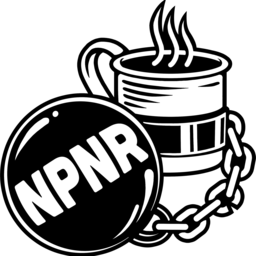Return of the debt
“Not Pretty, Not Rich” is a newsletter about money, finance, and the economy written by me, Sam Becker.
You can connect with me through my website, Twitter, LinkedIn, or send me an email at sammbecker@gmail.com. Also, if you enjoy this newsletter, I’d really appreciate it if you would share or forward it to others.
It’s Friday, November 20, 2020.
What’s shaping the world this week
The situation with COVID is deteriorating fast. Cases are rising, hospitals are filling up, and overall it looks like a very bleak situation. Shutdowns are coming, too. Here’s an interesting take:

Good vaccine news! We’ve received good news on the vaccine front two weeks in a row now, so if you needed something to feel good about, this is it.
A Fed board seat remains unfilled: Trump nominated a rather unorthodox economist, Judy Shelton, to the Fed Board, but she was denied a seat after a few Republicans voted against her confirmation. Shelton had some pretty…questionable views, which Senator Ron Wyden summed up with this hilarious simile:
 Judy Shelton’s ideas are so wacky and outdated, giving her authority over money would be like putting a medieval barber in charge of the CDC. If rubber-stamped by Mitch McConnell, her dangerous policies could wreak havoc on our economy long after Donald Trump leaves office.This week, the Senate is likely to confirm a former Trump campaign adviser who believes in the outdated gold standard theory to the Federal Reserve board. https://t.co/whBXoYEvzG
Judy Shelton’s ideas are so wacky and outdated, giving her authority over money would be like putting a medieval barber in charge of the CDC. If rubber-stamped by Mitch McConnell, her dangerous policies could wreak havoc on our economy long after Donald Trump leaves office.This week, the Senate is likely to confirm a former Trump campaign adviser who believes in the outdated gold standard theory to the Federal Reserve board. https://t.co/whBXoYEvzG NPR Politics @nprpolitics
NPR Politics @nprpolitics
Never let a crisis go to waste
The pandemic has altered our behavior. And with that comes new opportunities.
Let’s be frank: This year has been a nightmare, and for multiple reasons. But the pandemic will leave a lasting impression on all of us, and for some, will have far-reaching effects on our careers and finances.
But there is that old saying, “never let a crisis go to waste,” (attributed to several people) that maybe we should all take into consideration. While we’re not trying to start a war or ram through draconian legislation during a time of upheaval — most of us, anyway — the current situation is bringing about new opportunities to create and innovate for entrepreneurs.
For instance, I do find it interesting and inspiring to see how we (as in, humanity) were able to develop an effective vaccine for a new virus in less than a year. In some cases, vaccines can require up to a decade to be created and released.
On a more granular level, we’ve all had to adapt, as consumers, to new ways of buying products and services. Car dealerships, real estate agents, and others all had to find ways to service their customers with little or no in-person contact. We’ve also found ways to do our grocery shopping remotely, and get used to “eating out” in our homes — something that may never revert back.
And the pandemic also led to an apparent boom in entrepreneurship — perhaps out of necessity for workers who lost their jobs. Essentially, we’re seeing a lot of people who are out of work strike out on their own, either as freelancers or full-fledged business owners, according to The Wall Street Journal.
One interesting person highlighted in that WSJ piece concerns a hairstylist from California who was out of work when the state shut down in-person services. Undeterred, she bought some equipment and started working with her clients on her front porch — fully masked, of course, and while taking regular COVID tests. She says she’s making more money, and won’t be going back to the salon.
That’s just one example, but it’s a part of an overall trend. Currently, more than one-third of U.S. workers freelance at least part-time — a fraction that has increased due to the pandemic.
Getting down to it, there’s always an opportunity for those who are willing to take a leap. The pandemic has altered the world, and the companies that were too slow to keep pace have mostly gone under — opening up space for others to swipe their market share, in whatever industry, or to innovate and create better products and services.
Take a look around, find a problem, and see if you can come up with a creative, innovative, or even deceptively simple way to solve it. That’s what entrepreneurs do, and anyone can do it. And if you don’t, somebody else will.
Support NPNR’s friends and partners
“Just Make It Work” is an upcoming book by my friend and former colleague Donté Ledbetter. It gives you honest tips, inspiration, and stories on how to unapologetically build the career you deserve within your first 10 years.
“Money Vehicle”: A financial literacy course from CFP and former professional football player Jedidiah Collins.
NPNR has partnered with Listory, a content refinery that narrows down content to the best and most-recommended stories from top-ranked curators. How Listory works:
For You: Your view into industry leaders’ reading lists.
Track Your Progress: We guide you, story-by-story to form smarter habits
Follow: Choose to receive the content of experts in your field
Decide: Read now, save for later, or schedule. Whatever works for you.
Share: Your library is the best form of self-expression. Share, inspire, and start a conversation.
Download Listory today, and get a free, 3-month premium subscription.
Why you’re likely to start hearing about the national debt again
We all but forgot about the national debt over the past four years. But get ready for it to become a major talking point for the next four.
The U.S. is in a lot of debt. Somewhere north of $27 trillion, currently.
And we’re actively adding to that debt. Just this month (the start of the federal government’s fiscal year 2021) the budget deficit increased, too:


In basic terms, the government is broke, and we’re spending a ton of money. And there’s no real way to stop spending since Social Security checks need to be sent out, members of the armed forces need to get paid, and about a million other things require government spending to keep us from a complete societal breakdown.
As for the debt itself, there are two ways for the government to really reign it in: Cut spending, or increase income. It’s the same as any individual or household. And neither is relatively easy to do — spending cuts make people angry, and tax increases make people angry, too.
While the national debt isn’t of much concern to Joe and Jane Sixpack, it’s likely that we’re going to start hearing all about it next year. That’s because Joe Biden, once he’s sworn in, will be looking to spend money. First and foremost, on stimulus measure to boost the economy (something that’s desperately needed).
But the Biden administration will have other projects and policy goals they’ll want to spend money to accomplish, too, like expanding healthcare access. The administration is likely to hit stiff resistance from a Republican Senate, however, that will cite — you guessed it — the growing national debt as a reason that we can’t spend any more money.
So, while the national debt doesn’t have much of an impact on our everyday lives on a granular level, it’s probably going to become a major cudgel to stop Biden from achieving what he wants. It’s more or less the same playbook used in 2009 and 2010 following the financial crisis.
That could lead to a smaller stimulus than is actually needed, which could cause a slow economic recovery — something that also happened during the last recession.
A brief on this topic from the Center on Budget and Policy Priorities reads:
One of the most important lessons from the Great Recession is that they should be prepared to do more. While the Great Recession measures were substantial and prevented an even more severe recession, they ended prematurely and were insufficient to promote a robust recovery.
Now, I don’t bring this up in order to argue one way or another about the national debt, government spending, or Keynesian economics. But I did think it would be worthwhile to talk about why the national debt is probably going to be a key topic of conversation in the coming months and years.
That said, the national debt and government spending can be good topics to dig into. Because as we all know, governments always spend responsibly:


Numbers, links, and things to think about
$1.9 million: The price paid for a Belgian racing pigeon named New Kim.
$277 trillion: The total amount of global debt, according to the Institute of International Finance. Your credit card balance doesn’t look so bad now, huh?
300: The approximate number of companies that received PPP funds that have subsequently failed.
$1 billion: The amount Home Depot plans to pump into employees’ wages after sales skyrocketed during the pandemic — great news!
~80%: Employment in the food industry relative to January, according to the St. Louis Fed. Here’s a visual that shows just how hard the industry has been hit by the pandemic:
$24 million: The salary baseball player Robinson Cano will forfeit after testing positive for performance-enhancing drugs.
A profile of Dave Ramsey, a well-known personal finance personality.
Finding a fortune in buried treasure isn’t all it’s cracked up to be.
Should we stop members of Congress from owning and trading stocks?
Who said it?: “Why would you tell me to read a book about fucking poor people?”
No newsletter next week! Have a nice Thanksgiving,
Sam





